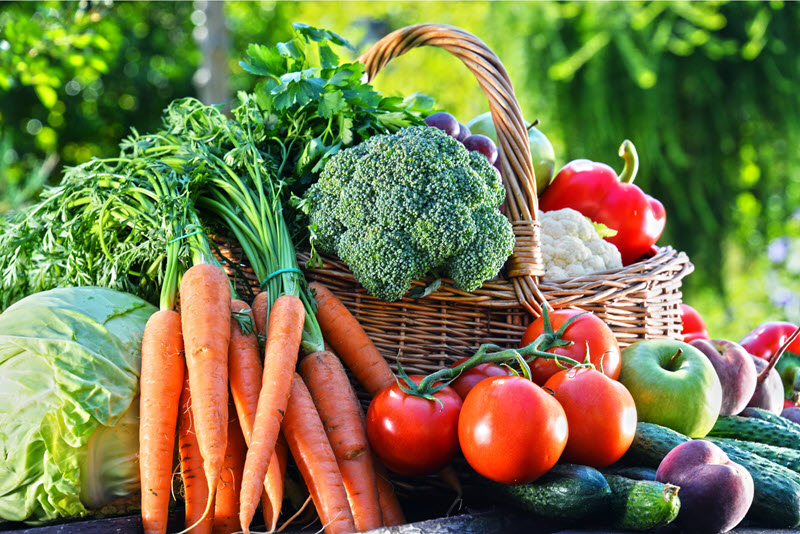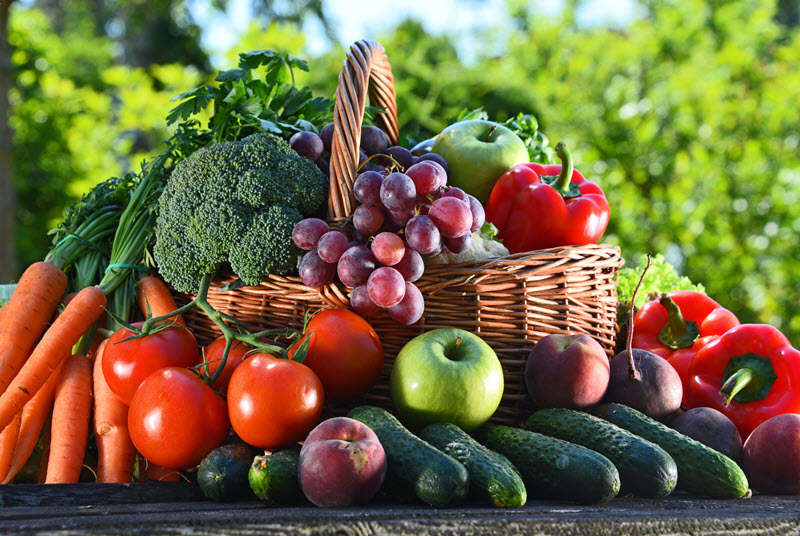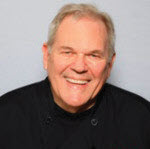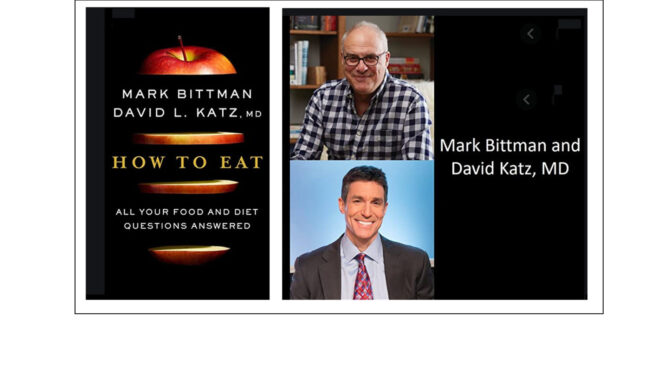An Article about “Eating Well”
An Article about “Eating Well” adapted by Alan Zox, Ph.D, founder of Zox kitchen Blog from the original article published in The NY Times by Mark Bittman, author of How to Cook Everything Vegetarian; and David Katz, M.D. author of the forthcoming book: The Truth about Food.
“Eating Well” has become one of the most popular phrases of the decade. And perhaps this is why so many people are uncertain about how they should feed themselves. The original article from which this adapted version comes appeared in the New York Times originally. I have always enjoyed it and often refer to it. Written originally by Mark Bittman, author of several books and articles including How to Cook Everything Vegetarian; and by David L. Katz, MD who was the founding director of Yale University’s Yale-Griffin Prevention Research Center among other positions. I am including here many of the ideas shared in their book, How to Eat, which I recommend to you.
How to Eat is a very different “nutrition” book. As they state: “The artful (or at least competent!) blend of science and sense is what we believe to be our signature contribution, the approach that sets How to Eat apart from the literally hundreds of “nutrition” books out there. Throughout this book, we invoke sense to interpret science.”
Let’s begin by citing the way Mark and David view themselves: They tell us that we should know how to eat. But that the core of their thesis Is that “eating well remains difficult because the choices are so difficult to begin with”. They ask friends and readers, and they include anyone else, “willing to address diet and nutrition that is grounded in real scientific consensus.” They are willing to admit they don’t know something before assuming they do. This is unique! and at the heart of why the article fascinated me to begin with. They don’t pretend to know everything and acknowledge this as an important truth. How many writers do you know who admit to this?
#1 Putting ethical concerns aside, which diet is the best: vegan, vegetarian, or omnivorous?
They tell us “The best is a theme- with the emphasis on vegetables, fruits, grains, beans, lentils, nuts, seeds, and plain water. Seafood, dairy, eggs, some meat, some fat, are all considered healthy.”

#2. “But what is a true paleo diet? And will it change my life? And what about burgers and pepperoni? And if I want a paleo diet, what can I eat? Plants are good.
What about a juice cleanse? Are they dangerous? They tell us generally not. But neither are they useful. Do they actually cleanse you? The body detoxifies itself daily which is the job of the liver and the kidney. The spleen and immune system are also involved. In fact, we learn that the liver, kidneys, gut, and immune system do a far better job cleansing than any juice. We are told by David and Mark that detoxifying organ systems is the key. This means “eating well” also involves exercising, sleeping enough, managing your stress, etc.
David talks about “inducing ketosis”.
#3 David explains ketosis is a type of diet that starves the body of glucose sources so that it is forced to burn ketone bodies— which are products of fat metabolism- as fuel.
# 4 The question is whether ketosis is healthy? There is actually no evidence that such diets are healthy or not. And no evidence that it’s helpful in losing weight.
My own experience is that it can cause weight loss but it’s not necessarily good for you. For example, cholera causes weight loss in some people, but it also can cause blood sugar and blood lipids to come down. Thus, it’s not necessarily good for you; or a low plant-based diet with carbs or a carb diet with meat.
# 5 Interestingly, the evidence shows that the benefit of plant predominant diets for people far outweighs diets for healthy outcomes especially as related for years in life and vitality. Mark and David argue to forget about carbs and focus instead on foods that are best for you.
#6 My favorite insight in the article: Discussing the view that “carbs are evil”. They say: “Wrong! In fact, all plant foods are carbohydrate sources”.
Everything from lentils, to lollypops, beans to Jellybeans, to doughnuts are mostly carbohydrate sources. In short you “cannot have a complete or healthful diet without carbohydrate sources.”
Carbs can be bad, not because they have been robbed of nutrients, but they raise insulin levels; and are often high in added fats, and sodium.
#7 “What about gluten? It seems like everyone is gluten intolerant. In fact, statistically, a small percentage of the population is gluten intolerant. About 1% of people have celiac disease. 90% of people have no problem digesting gluten. For those who need to avoid gluten, foods such as meat, fish, fruits, vegetables, rice, and potatoes without additives or seasonings do not contain gluten and are part of a well-balanced diet.
#8 “Should I eat whole grain bread? or is it not that bad for you? “It’s not that bad for you. Even if you wish to lose weight. An optimal diet leaves room for good bread- whole grain especially.” In the words of Mark and David, “Good bread is extraordinary and worth the risk.”
#9 I want to lose weight, is a diet more important than exercise?
Yes! because it is much easier to ‘out eat’ calories burned by running than to outrun all the tempting calories that modern marketing encourages us to consume. Both diet and exercise are important to health, and exercise is important to weight maintenance. Mark and David argue that to lose weight, the preferential focus needs to be on controlling calories than to run more.
#10 Are lectins toxic? making weight loss harder? Lectins are spread across almost the entire expanse of foods consumed, also linked to health benefits. Lectins are found in beans, lentils and many fruits and vegetables.
#11 Are beans good for us? And what about gas? We learn from reading; beans are easily digested if cooked well. Beans, and other food that provides enzyme support, and are considered “the most beneficial food for human health.”
# 12 Should I care about nutrition labels? Mark and David have this advice: “The best foods don’t even have labels because they are just one ingredient: such as avocados, lentils, blueberries, and broccoli. But what about foods with labels? Look for a short ingredient list of things you recognize as actual food. If the ingredients list is dubious, with chemicals, various kinds of oils, sodium, and so on, the nutrient profile will be too. It is really the overall nutritional quality of the food that matters.”

#13 “ What about intermittent fasting? Is that effective for better gut health and energy health? It’s effective, relative to doing nothing. Occasional fasting helps reset your diet.
#14 Do I have to eat grains if I want to be healthy?“ They advise: “No, but optimizing your diet and thus your health, is harder if you exclude whole grains which are highly nutritious.”
#15 What about the friend who never eats fruits and vegetables and is quite proud of that? Is it possible to be healthy without eating fruits and vegetables? They tell us a qualified No.” Would it be as good as the same diet with vegetables fruits? They tell us, “No way“.
#16. “Here’s another good one many of us ask: If I want to lose weight, should I eat less? And if I eat less, will my metabolism slow down? Without sarcasm they tell us: “If you starve yourself, yes, because a smaller body burns fewer calories than a larger one unless the weight loss burns less.”
#17 “If your diet is excellent, no single food will be responsible for the benefits. If your diet is terrible no single food will compensate.” Fat balance is most important.
#18 “What about avocados? Are they good or bad for you? Everyone says they are good for you, but with limits. One a day is certainly fine. Their nutrient profile is great and is similar to the fat in olives.”
#19 The difference between good fats and bad fats in the diet is key. Mark and David explain: “What really matters is to get a mix of polyunsaturated fats, omega-6, omega-3 and monounsaturated fats. We need a balance of foods. Get the right fats from nuts, seeds, olives, avocado and seafood, and use of the best cooking oils- especially extra virgin olive oil. To avoid an excess, limit the intake of foods high in saturated fat. That includes most meats, and full fat dairy. All junk food is suspect for all sorts of reasons.”
#20 They tell us that all fat sources are a mix of different fatty acids. “Almost all fats and oils contain a mix of fat varieties- saturated, polyunsaturated, and monounsaturated. Lard is almost 40 percent saturated fat and tallow is more than 50 percent saturated. Raising the average amount of saturated fat in our diet makes no sense. And there are no other factors.”
#21 heard it was bad. “There is no evidence it’s good for you, but organic is better, and more expensive as well. But organic farming protects farm workers from harmful pesticides.”
#22 But is organic farming healthier for you? Yes, it is better for you. They tell us: “It is environmentally better than coconut or olive Oil and yes unquestionably better for you.”
#23 What about probiotics? Healthy for us but they ask: “What about eating too much yogurt? They suggest you will probably get full before eating too much.
#24 Can cooking make some food more nutritious? Yes and No…Heat can damage some antioxidants, so raw berries are more nutritious than cooked. But they tell us cooking can make some food more nutritious. We cannot even eat, let alone digest, dried beans, and lentils without cooking them. But cooked, they are among the most nutritious and most health promoting of all foods. The antioxidant that makes tomatoes red, lycopene is more bioavailable (our metabolism can access it more easily) when cooked, than when tomatoes are eaten raw. Cabbage and other brassicas (including broccoli) and most dark, leafy greens are more readily digested with gentle cooking as well. When asked, what kind of soy foods should I eat? they suggest traditional soy foods such as tofu and tempeh are good for you. Largely because they provide sound nutrition and usually, they displace meat. Soy as a supplement is less clearly a good idea.”
The writers mention that soy products like compounds can promote cancer growth in animals. The estrogen like compounds in soy can promote cancer growth in lab animals but the net effect of eating foods like tofu and tempeh is less cancer and not more.
#25. In their discussion about eating seafood: Answering the question, is eating more fish for lean protein healthier for you? Or does too much fish expose me to toxins like mercury? Which is it? They state: “Undoubtedly the fish are the healthiest animal protein to eat. However, there are huge sustainability issues.”
#26 They continue: “But fish shouldn’t be eaten three times a day. Should it be eaten one time a day if it’s sustainable and not otherwise tainted. If you are not sure of the source, smaller fish are far less likely to contain mercury than big ones.”
#27. They suggest: “Algae supplements are away to get vitamin D when it’s winter and sun has disappeared.”
#28 When asked, “What are the best antioxidants to take and what are easy ways to get them in our diet? They responded, “Eat a variety of vegetables and fruit and you’ll get the antioxidants you need. But here is the big caveat: There is no good evidence that antioxidant supplements confer the same benefits of a diet rich in antioxidants. Other good sources include coffee, tea (white and green), dark chocolate and cocoa, whole grains, legumes, nuts and red wine.”
#29 They discussed alcohol consumption: “We have heard that moderate alcohol consumption is good. Benefits are possible, but so are risks. Alcohol generates relaxation. The consensus is that moderate consumption may be beneficial and is not harmful. Moderate means 2 glasses per day for men, one for women. But there is an association of almost any level of alcohol intake with increased cancer risk- breast cancer in women, and liver cancer in men.”
Then the question becomes, what is the healthiest alcohol? David and Mark ask the question: “Should I aim for low carbs or low calories? They recommend not drinking for health. But if moderate drinking is done for pleasure then just keep it moderate. Adding a sweetener however is a different story.”
Next, they move to Red Wine and whether it’s good for you. They tell us that “antioxidants from the skins of grapes may confer unique health benefits which suggests red wine is the best form of alcohol.
But they emphasize that drinking red wine is still not the thing to do for merely healthy reasons. They stress as you recall that moderate drinking is still the preferred approach to take daily- 2 for men; 1 for women.
#30 Next, they jump to caffeine and focus on positive effects- being alertness and slightly enhanced cognition. They tell us that the negative effects are increased heart rate, blood pressure, jitteriness, and insomnia, but not cancer.
#31 What about Lattes and with which milk product? I love almond milk. “Oat milk” is a different story. However in keeping with their approach to add humor to their analysis, we learn you can’t milk an oat but you can soak oats in water, followed by grinding and straining” and then they tell us “We only need to drink milk if we were born yesterday literally”. But do we need calcium?
#32 Mark and David ask: “Are there non-dairy sources of calcium?” Here are several they recommend: : kale, other dark leafy greens, beans, and soy.
#33 Is inflammation by nature bad for us? Mark and David tell us that imbalance in our diet is bad….For example, Whole grains instead of refined grains are said to be good for our diet; nuts, seeds, olive oil, avocado are good; fish and seafood in place of meat, full fat dairy, are good; refined carbs, and added sugar, is instead made up of beets, fruits, beans, lentils whole grains, nuts seeds and plain water.
#34 Plain seltzer is fine for generally healthy people and is a far better choice than any of the popular sugary drinks.
#35 Asked if seltzer water decalcifies your bones? They state, “Actually it doesn’t.” They tell us they are pleased to hear this because they like seltzer with a snack. They also tell us that there is some evidence that eating earlier in the day is beneficial relative to packing in calories close to bedtime, but total daily diet quality and quantity are more important.
#36 Is there a final verdict on eggs? and are there are high cholesterol foods that are OK to eat?
They reply, “Most levels of high blood cholesterol do not come from dietary cholesterol but rather from saturated and trans fats. Again moderation is key. The average person gets most of their daily recommended eating from other more pressing eating concerns like saturated fat, added sugars, and high sodium.”
#37 Asked if protein supplements are necessary for building muscle? The reply a simple No.
They recommend eating a well-rounded diet to build muscle and tell us that if your diet is wholesome and balanced overall it almost certainly doesn’t matter.”
#38 Asked, should you avoid GMO’S? They reply, “Genetic modification is just a method of producing something new.” When asked, does it matter what chemicals you use to make them? They reply, “The chemicals used in growing them are a greater concern. GMO’s are most often found in junk food.”
#39 Asked a big question: Which foods will give me cancer? they reply: “Processed and cured meats are classified by the international Agency for Research on Cancer as a Group #1 Carcinogenic. Not as bad as tobacco, but evidence about a link are comparably clear. Red meat is classified as Group 2A, which means comparably carcinogenic.
The bottom line is that most of us would be better off if we ate less meat. BBQ tastes great but it produces carcinogens. And this is my favorite question: Does cooking carbohydrates at high temperature produce cancer? and if so, will it kill me? Or might it kill me? We learn that this research is a work in progress.

Send questions or your favorite recipes directly to azox@zoxkitchen.com I look forward to hearing from you. Chef Alan

